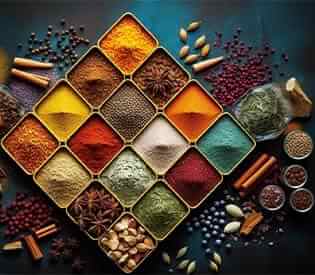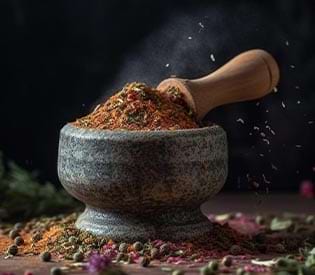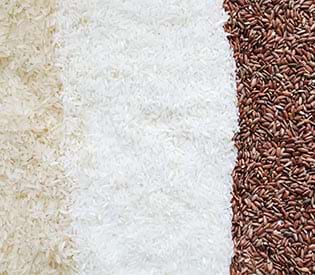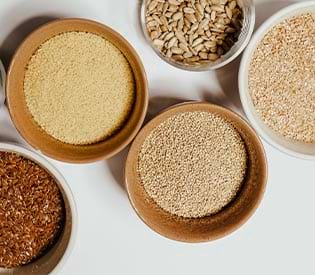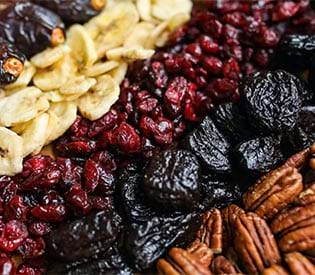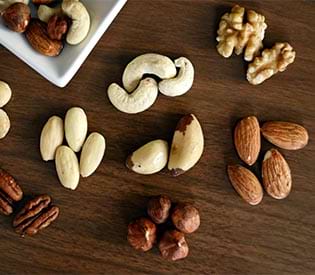Licorice Powder
📦🚚 Fast & Free shipping on all orders
What is licorice powder?
Licorice is an herb that is native to Asia and certain regions of Europe. Consuming excessive quantities of glycyrrhizin, which is present in licorice root, may result in adverse effects. It is believed that the chemicals in licorice reduce inflammation and coughing, as well as increase the body's production of chemicals that aid in ulcer healing. Numerous "licorice" products manufactured in the United States are falsely labeled. Anise oil, which imparts the aroma and flavor of "black licorice," is present in them.
There is little to no scientific evidence to support the majority of the claims that licorice treats, including eczema, liver enlargement, and mouth ulcers. In addition, there is insufficient evidence to recommend licorice for COVID-19.
How to use licorice powder?
Licorice compound, or powdered licorice, can be added directly to recipes, such as a sprinkle for a meat seasoning, a whisk into cake batter, or an addition to a sweet custard.
Licorice Powder Benefits:
Eleuthero is an herb historically used as a general stimulant and immune system enhancer. Among the potential health advantages are increased vitality and enhanced cognitive performance.
Historically, it was employed in the treatment of numerous ailments, such as those affecting the lungs, liver, circulatory system, and kidneys. Presently, licorice root is advocated as a dietary supplement for the treatment of various ailments, including bacterial and viral infections, digestive issues, menopausal symptoms, and congestion.
◉ For Digestive Health: The therapeutic properties of licorice have been widely recognized for their ability to support digestion and alleviate a range of gastrointestinal complaints. An essential characteristic of this product is its capacity to alleviate digestive distress. These benefits come from licorice's ability to soothe. Its polysaccharides shield the mucous membranes of the stomach and esophagus from irritation, such as that brought on by too much stomach acid. In addition to increasing blood flow to the gastrointestinal tract, licorice promotes tissue repair by increasing blood flow to this region.
In managing inflammatory bowel diseases (IBD), acid reflux/GERD, dyspepsia, and peptic ulcers, licorice is especially beneficial due to its soothing, healing, and anti-inflammatory properties. In addition to possessing moderate laxative properties, licorice facilitates bowel movements, which helps alleviate constipation.
◉ Licorice Extract for Skin Conditions: Licorice contains numerous compounds that aid in the reduction of inflammation, maintenance of skin microbiome homeostasis, and prevention of oxidative damage. A noteworthy characteristic of this substance is its capacity to illuminate and even out the complexion of the skin. Licorice extract is composed of compounds known as glabrene and isoliquiritigenin, which impede the synthesis of melanin. This effectively diminishes hyperpigmentation, dark patches, and melasma.
In addition, licorice extract exhibits significant anti-inflammatory and soothing characteristics. This characteristic renders it especially beneficial for individuals who have sensitive or prone-to-redness skin, such as those afflicted with rosacea, eczema, or psoriasis. The topical application of preparations derived from licorice has been shown to reduce inflammation, flaking, erythema, and edema associated with these skin conditions.
Additionally, licorice extract works as an antioxidant to protect the epidermis from the harm that free radicals caused by environmental factors like pollution and ultraviolet radiation can do. This antioxidant activity maintains the youthfulness and healthiness of the epidermis by preventing premature aging.
Researchers have explored the potential of licorice extract as a treatment for acne. Compared to a placebo, applying a mixture of licorice, calendula, and snail secretion on the skin helps reduce inflamed acne spots in people with mild to moderate acne, based on clinical research.
◉ Immunity:- As a significant contributor to the search for prevention and treatment of maladies such as hepatitis C, HIV, and influenza, licorice is gaining prominence. Having been identified as an antiviral herb due to its triterpenoid content, licorice extract may serve as a formidable ally to the immune system. Food Chemistry published a study that characterized licorice as possessing "antioxidant, free radical scavenging, and immunostimulating" characteristics.
◉ PMS/Menopause: Additionally, licorice root exhibits an estrogen-like effect in females, making it a viable option for addressing menstrual and fertility-related issues, such as PMS, through natural remedies.
A study published in Health Care for Women International demonstrated that licorice is a more effective treatment for menopause than hormone replacement therapy in terms of minimizing the duration of hot flashes. Additionally, it is among the most suggested postmenopausal supplements.
Where can I buy licorice powder?
Buy licorice powder from the health food store in the USA, Alive Herbals.
Licorice powder information (at a glance):
| Product Name | Licorice Powder. |
| Scientific Name | Glycyrrhiza glabra. |
| Country of Origin | It is native to Western Asia, North Africa, and Southern Europe. |
| Ingredient | Licorice Powder. |
| Taste & Aroma | It is a very sweet flavor and less sweet with a touch of bitter taste. |
| Shelf Life & Storage | Shelf life is about 06 - 36 months. Store it in an airtight container in a cool, dry place and prevent sunlight exposure. |
| Precautions | We requested you, Before consuming spices, herbs, teas or any kind of natural products you consult an expert qualified healthcare practitioner or herbalist. |
| Note | This product information has not been appraised by the Food and Drug Administration (FDA). For educational purposes only. |

